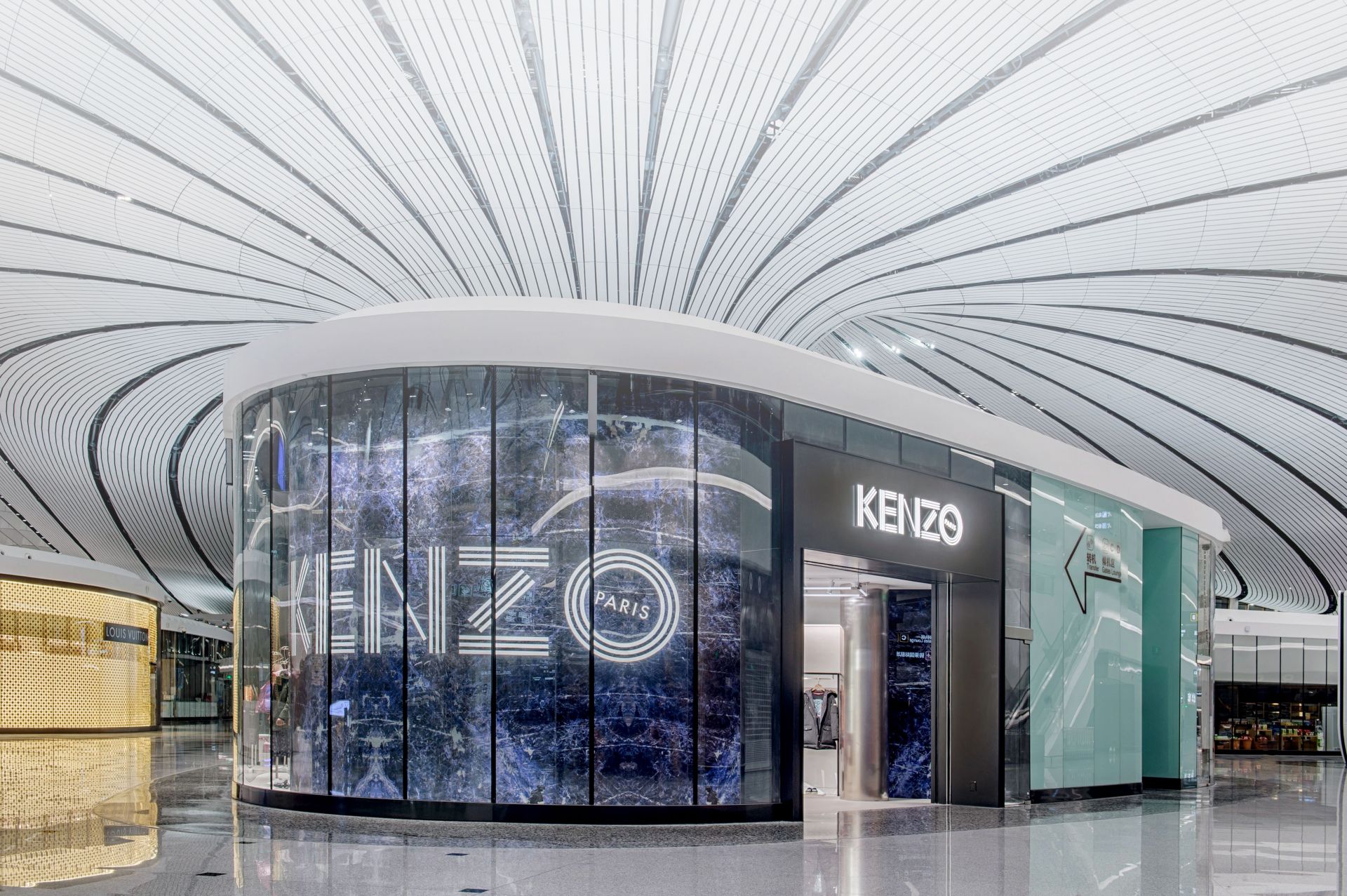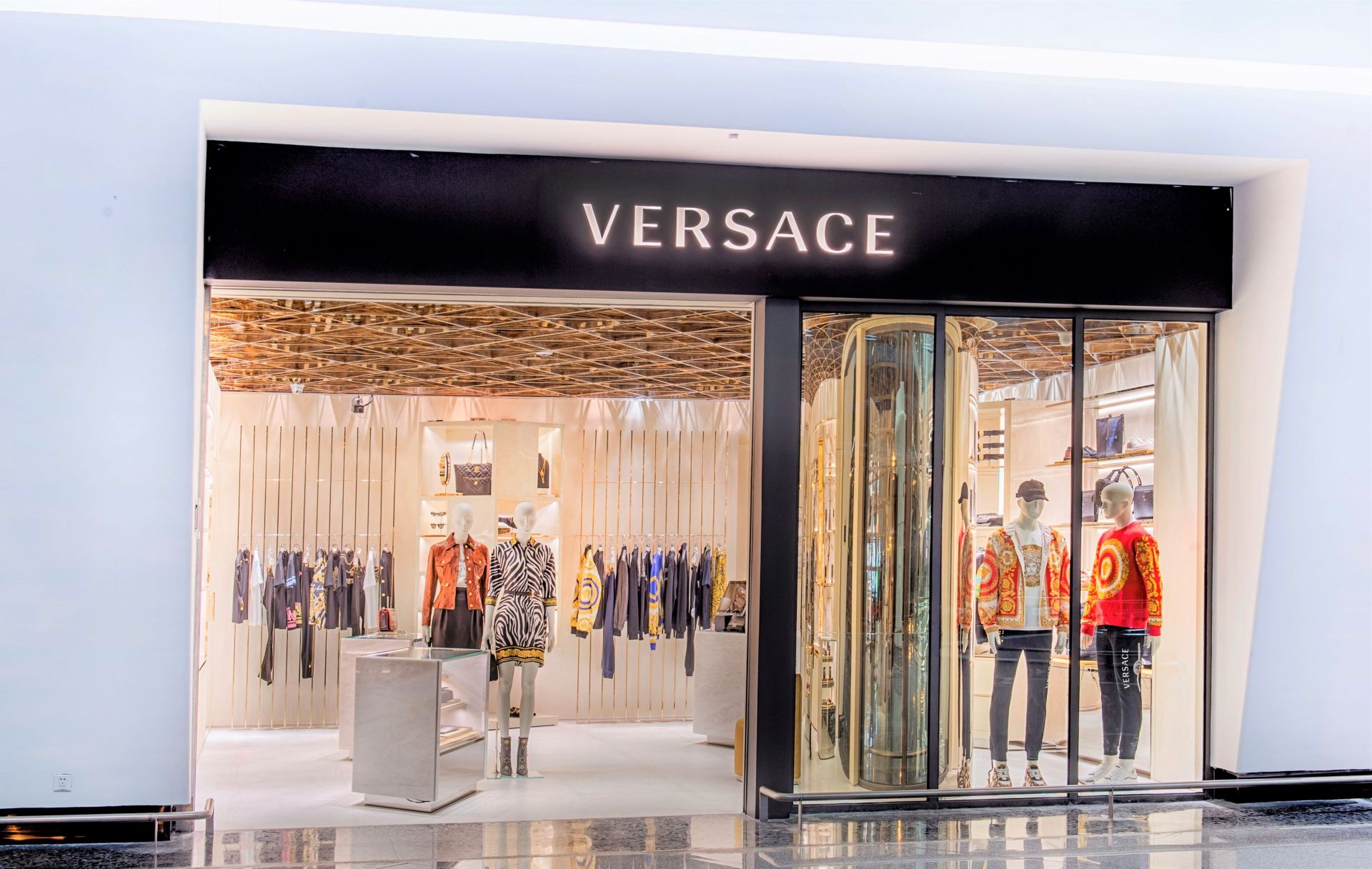DAXING INTERNATIONAL AIRPORT
Lagardère takes
airport duty paid retail to a new level

“Daxing is the ultimate milestone in a sense
that people will come to talk about the before-and-after Daxing in Chinese airports – just like there was the before and the after with Beijing Capital International Airport Terminal 3 for the Olympics”
Lagardère Travel Retail CEO North Asia Eudes Fabre
French company Lagardère Travel Retail is the largest store and unit operator at Beijing’s spectacular new gateway. The travel retailer manages over 30 units across luxury fashion, beauty, travel essentials, speciality and food & beverage, most of them on the domestic level. Here Lagardère Travel Retail CEO North Asia Eudes Fabre talks us through the offer and underlines the airport’s importance to his company and to Chinese aviation and tourism.


“Daxing is a highly strategic project for us, not only for our development in China but also because of what it represents for the country and the industry,” says Lagardère Travel Retail CEO North Asia Eudes Fabre. “It’s also the realisation of our multi-segment, three-business line strategy.
“In Daxing our 30+ units represent all our businesses, from our Relay bookstores to our Discover gifts and souvenirs concept, and toys with Lego. We also have a wide range of fashion brands, including Emperor Armani, Versace, MCM, Jimmy Choo, Tory Burch, Kenzo, Tommy Hilfiger, Gucci Watches & Jewellery, Bally, Tumi, Pandora and many others.
“With beauty, we’ve opened an Estée Lauder mono-brand store as well as a perfume store under our Amuse concept. We also have Victoria’s Secret, DVF (Diane Von Furstenberg) and others.
“Then we also have food & beverage (see next page). We’ve opened Godiva Café as well as a Japanese dessert brand and a juice bar. It’s really about integrating our different business lines and our different concepts to best serve the customer and provide a holistic experience – but also encourage real cross-shopping,” Fabre explains.
“So, if you’re shopping in our luxury stores, while you wait we will get you a drink or a dessert from one of our other stores. Or after you’ve bought in our luxury stores, we will give you a fashion magazine, for example, from Relay.
“It’s a big accomplishment,” he continues. “A lot of work has gone into this and a lot of trust from our brand partners who followed us into this project. We all know that Daxing won’t hit its full capacity until a couple of years down the line, as the airport is planning a gradual ramp-up of traffic over two years. But even with the very limited flight schedule that we have now, [pre-COVID-19] we already saw better sales than we hoped for. This gives us strong confidence for the future.”


Fabre describes the Daxing opening as a “watershed moment” for domestic duty paid travel retail in China. “We’ve been doing this for almost ten years and at the beginning we had a lot of skepticism from brands who didn’t believe in the sales potential,” he comments. “They thought it would be detrimental to their image; or believed it was a distraction with so many projects downtown.
“Brands worry about cannibalisation, which is fair enough. But such a strong brand line-up with a lot of firsts in a domestic airport really opens the eyes of the entire luxury industry to the potential and the value of the channel. And, of course, the airport itself is spectacular. It showcases the brands in a wonderfully premium environment. It’s not just the adjacencies and the quality of the other brands, but the spectacular architecture, which elevates the brand image.

“The big luxury conglomerates, as well as independent luxury brands, are opening their eyes to the fact that the duty paid travel retail channel is attractive, not just from the qualitative perspective here but also from an economic-financial point of view. The problem with China is that the local markets are so big, and it can be an endless money pit as there’s always another city to open, another mall popping up.”
Even brands that have 100 or 150 stores still haven’t really made a big dent in terms of China’s vast domestic market, Fabre points out. In contrast, he says, airports are a quick, capital-efficient way to reach customers from smaller or more remote cities and markets that brands wouldn’t be able to reach otherwise.
He notes that high street retail in China, as in much of the world, is suffering from intense competition, particularly from ecommerce. “A new shopping mall is always a gamble because you don’t know if it’s going to work but the airport is usually a sure bet in terms of traffic and visibility,” Fabre comments. “It gives brands a highly qualitative exposure to a lot of people that they don’t necessarily reach out to effectively on a day-to-day basis.”
Whereas duty free retail remains largely pinned to its innate price-saving proposition, duty paid pricing is generally the same as downtown. “It’s the big challenge of duty paid because in duty free the reason to buy is quite obvious – real or imagined, it’s the saving,” he says. “In duty paid, we have to be perfect in terms of retail execution, because the customer clearly isn’t concerned about saving money but therefore has a higher expectation.

“So, it’s important that we deliver exceptional quality and a really good brand image, store presentation and customer service, so people feel like it’s worth their while to be spending their money in these airports. That’s why we need to work hard on delivering an experience that is on par with the brands’ flagships downtown in spite of all the constraints of the airport environment – whether it be small space, limited time, high operating costs and so on.”
Such an approach is particularly important to the key beauty category, Fabre points out. “For a couple of years many airports tried to take the classic multi-brand duty free beauty shop concept into duty paid. It was a complete flop,” he says. “Now, we’re developing mono-brand boutique stores, such as Estée Lauder, but we also opened the first standalone Jo Malone boutique at Shanghai Hongqiao in May 2019 [the brand’s first standalone store in an airport in China]. We’re opening there with Givenchy early in 2020 and Dior after that.”
The company also opened a duplex Chanel standalone beauty and accessory store at Shanghai Hongqiao Airport in November, the first time such a concept has been seen in an airport.
“There’s a new awareness of the airport duty paid channel, but that’s partly because we are delivering standards that are uncompromising – good or even better than what you can find in a department store environment, for example,” notes Fabre.
“The other specificity about the duty paid channel in China is the very high frequency of travel. Because China is such a big country, people have to fly to get around.
“We have customers who fly not just every month, but even multiple times a month. If you ask them why they shop at the airport, they tell us, ‘My professional travel schedule is so hectic.’





“The pace of life in China is high pressure. It is a hectic place to live, especially in the big cities. Many people just don’t have time to go shopping downtown. When they are not travelling or hard at work, they just want to relax, be at home, be with friends and family. They don’t want the stress of weekend shopping in the city.
“I think the duty paid travel retail channel really addresses that need. And, of course, the airports are also playing their part by planning the spaces well, and by creating these fine architectural environments. They are also planning better than they used to in order to create the conditions needed to attract such brands.”
With Lagardère Travel Retail offering fashion and other specialist retail, F&B and convenience retailing (all its pillars except duty free, which is controlled by China Duty Free Group), Daxing is an illustrious new showcase for the company’s multi-platform capabilities. “It’s a big statement to our brand partners and to our airport partners,” says Fabre.
“We’re able to work with the world’s biggest brands in the world’s most important airports and that’s a testament to our track record and our capabilities. A lot of brands want to be in Daxing and so do a lot of operators. Now we have 23 airports in China – success breeds success.
“It’s like people now understand, ‘Okay, we understand what it takes to be successful in the Chinese market’, which is very complex and very multi-faceted. A lot of people have tried, not everybody has succeeded. And the market has matured and professionalised. But not everybody can actually make it happen. We’ve been in China since 2000 in various retail businesses and in travel retail here since 2007. So the track record is there.
“So that’s two decades of experience, of building credibility, and of building trust with airport operators and brand partners. And Daxing is the culmination of that.”





Spotlight Series
March 2020
Share this page:
